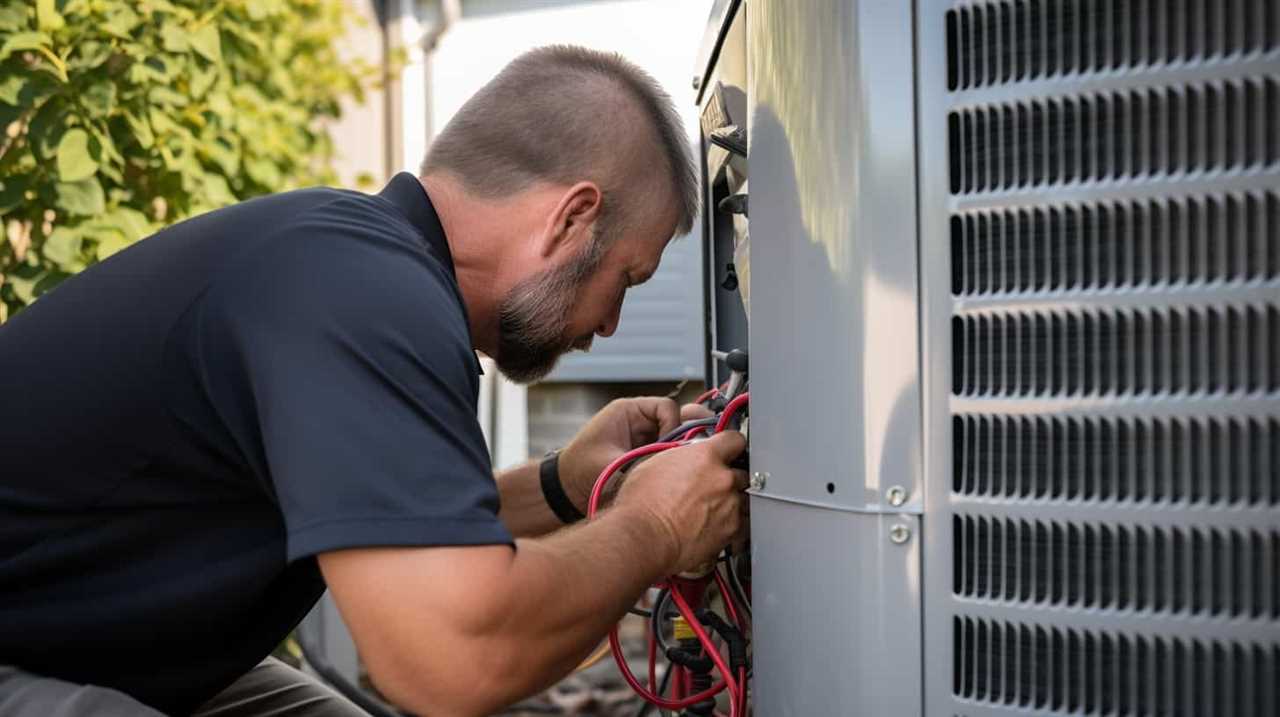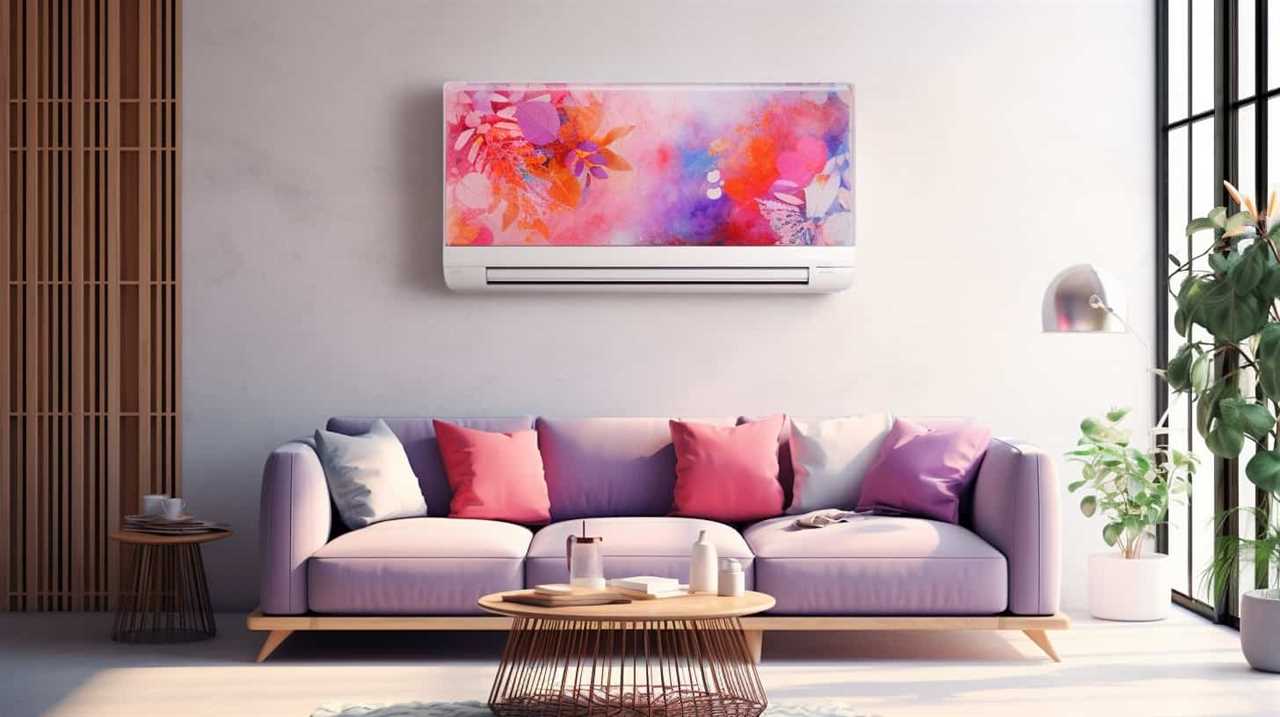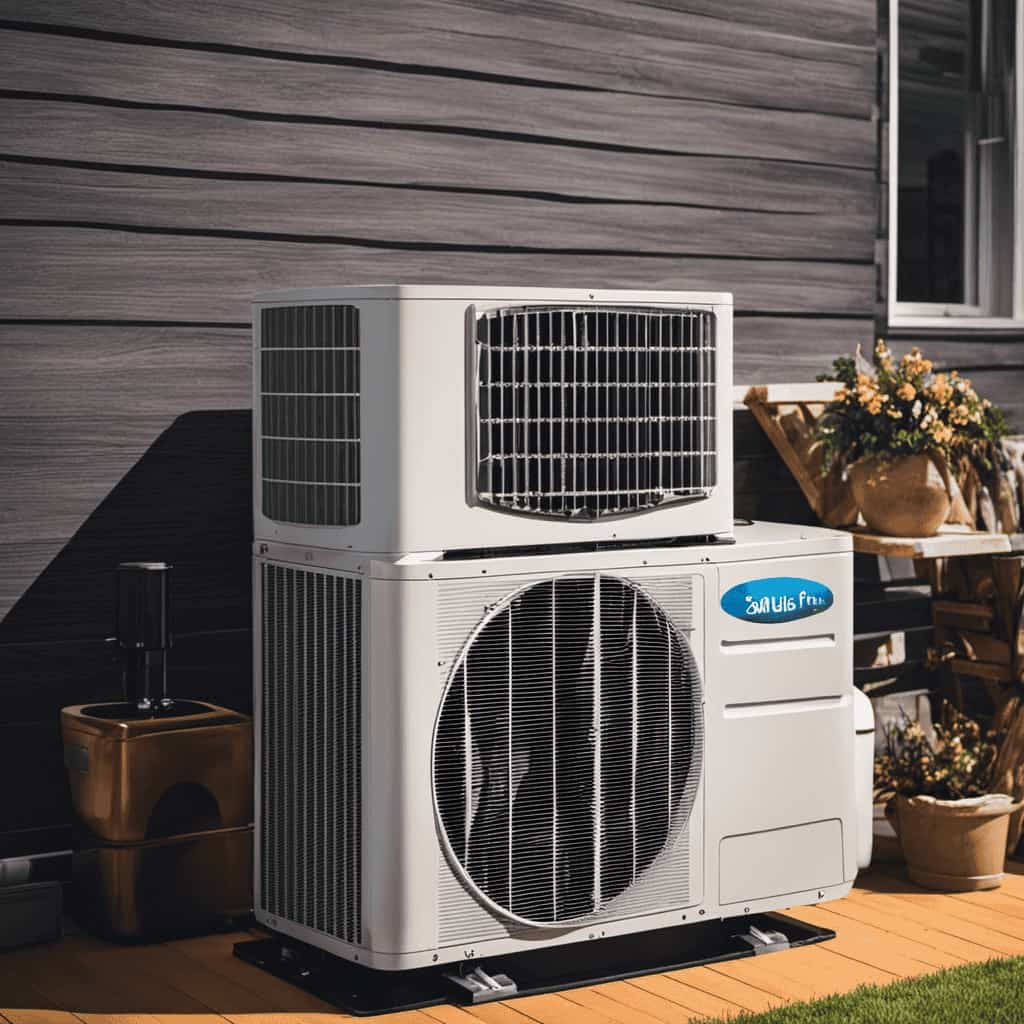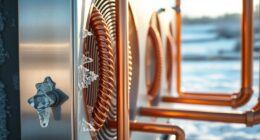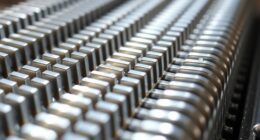We understand your concern: “Heat pump technology may not be effective for my needs.” However, we want to assure you, dear reader, that this article is here to dispel any doubts.
We have curated insightful information on heat pump technology that will change your perception. From understanding efficiency ratings to optimizing performance, we’ve got you covered.
Join us as we explore the future of heat pump technology and discover how it can serve you better.
Key Takeaways
- Heat pumps transfer heat from one area to another using refrigerant.
- Regular maintenance is crucial for optimal operation and extended lifespan of heat pumps.
- SEER and HSPF ratings help determine the cooling and heating efficiency of heat pumps.
- Factors to consider when choosing a heat pump system include energy consumption, cost effectiveness, and reliability.
The Basics of Heat Pump Technology
Let’s start by understanding the basics of heat pump technology. Heat pumps are a wonderful heating and cooling option that can provide comfort and energy efficiency to your home. These systems work by transferring heat from one area to another, using refrigerant to absorb and release heat.
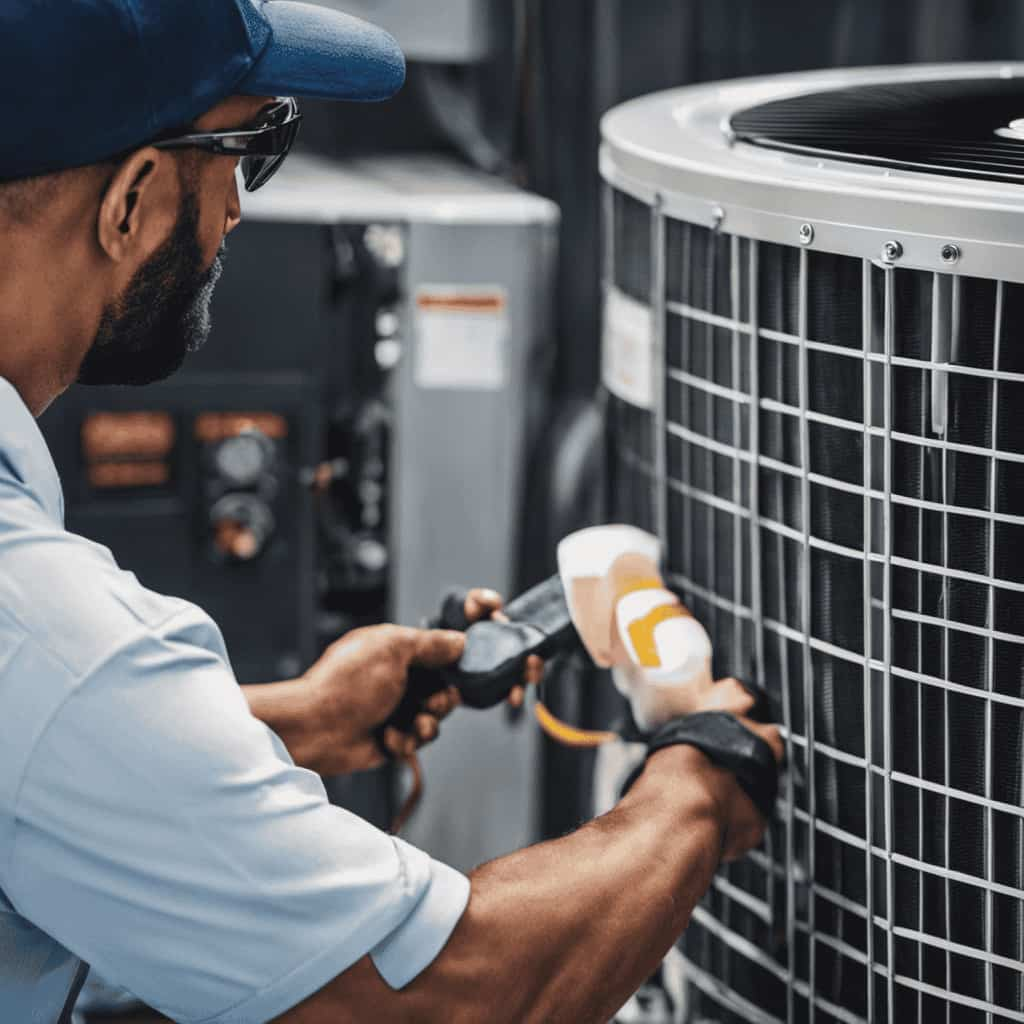
During the colder months, heat pumps extract heat from the outside air or ground and transfer it into your home. In warmer months, they reverse the process, removing heat from your home and releasing it outside.
To keep your heat pump running smoothly, regular maintenance is crucial. This includes cleaning or replacing filters, checking refrigerant levels, and inspecting electrical components. By properly maintaining your heat pump, you can ensure its optimal operation and extend its lifespan.
Now, let’s dive into understanding heat pump efficiency ratings.
Understanding Heat Pump Efficiency Ratings
We can gain a better understanding of heat pump efficiency ratings by examining their SEER (Seasonal Energy Efficiency Ratio) and HSPF (Heating Seasonal Performance Factor) values. These ratings are important because they provide a measure of a heat pump’s energy efficiency and its ability to provide heat or cool air effectively.
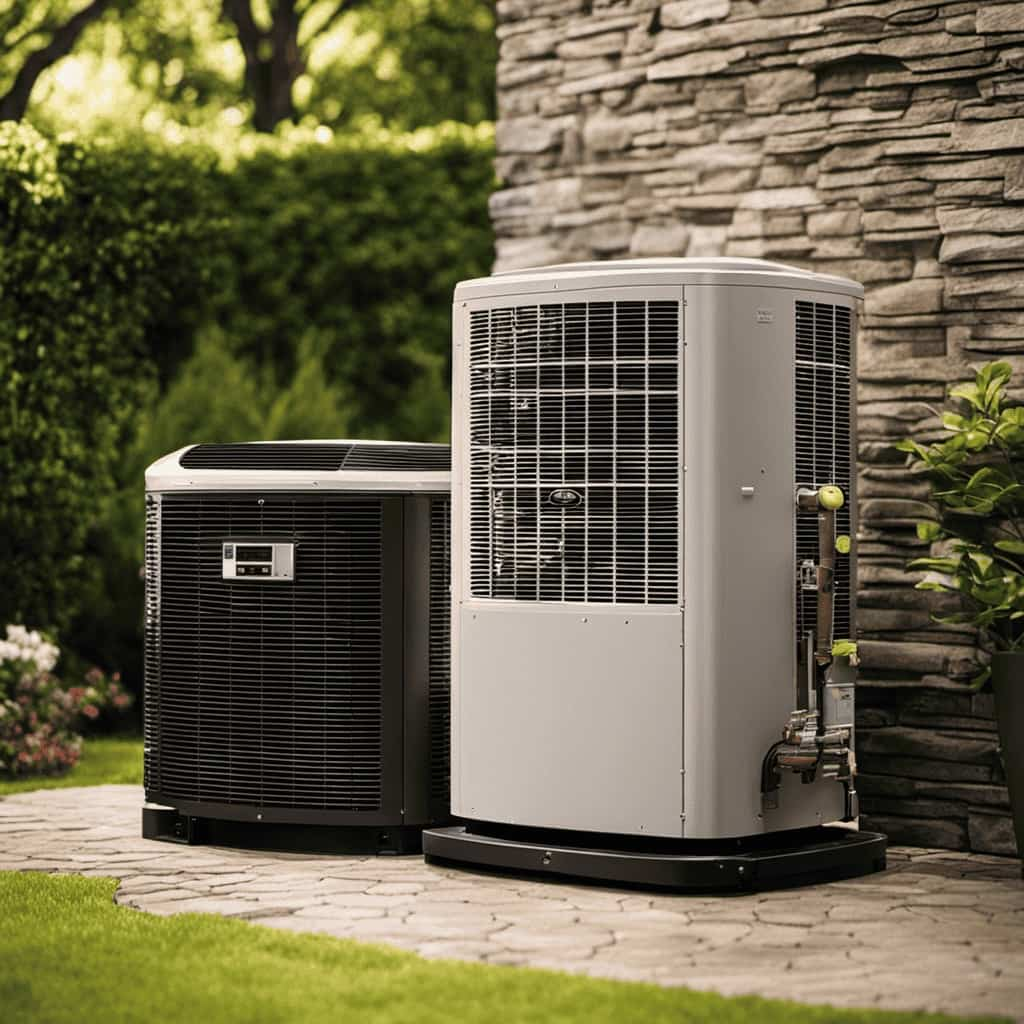
The SEER rating indicates how efficiently the heat pump can cool your home, while the HSPF rating measures its efficiency in heating mode. By comparing these ratings, you can determine the potential energy savings of different heat pump models.
It’s also worth noting that heat pump efficiency standards have been established to ensure that consumers have access to energy-efficient options. Understanding these ratings and standards will help you make informed decisions when choosing a heat pump for your home, ultimately saving you money and reducing your environmental impact.
Key Factors for Choosing the Right Heat Pump System
When considering the right heat pump system for our needs, there are several key factors that we should take into account.
-
Energy Consumption: We want a heat pump system that’s energy-efficient, reducing our carbon footprint while keeping our heating costs low.
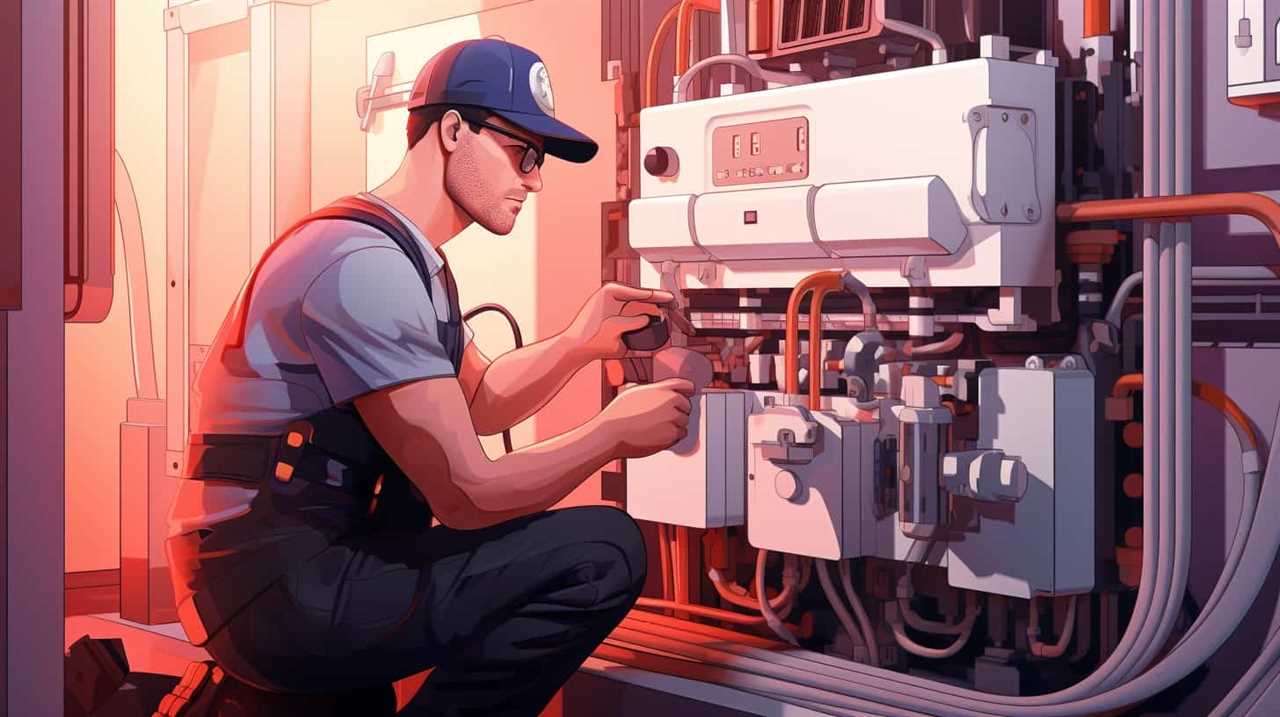
-
Cost Effectiveness: We want a system that not only saves us money in the long run but also provides value for our investment. It should be affordable to purchase and maintain, ensuring that we get the most out of our money.
-
Reliability: We desire a heat pump system that’s dependable and will keep us warm during the coldest months. We want a system that we can trust to work efficiently and effectively.
Considering these factors will help us make an informed decision when choosing the right heat pump system.
Now, let’s explore some tips for optimizing heat pump performance.

Tips for Optimizing Heat Pump Performance
Maximizing heat pump performance requires regular maintenance and proper usage. To ensure optimal efficiency and longevity, it’s important to prioritize heat pump maintenance.
Regularly cleaning or replacing air filters, checking and cleaning the outdoor unit, and scheduling professional maintenance can greatly improve performance.
Additionally, proper usage is essential for energy saving tips. Adjusting the thermostat to the recommended temperature range, using programmable settings, and keeping doors and windows closed will maximize efficiency.
It’s also important to minimize heat loss by insulating the house properly and sealing any drafts.
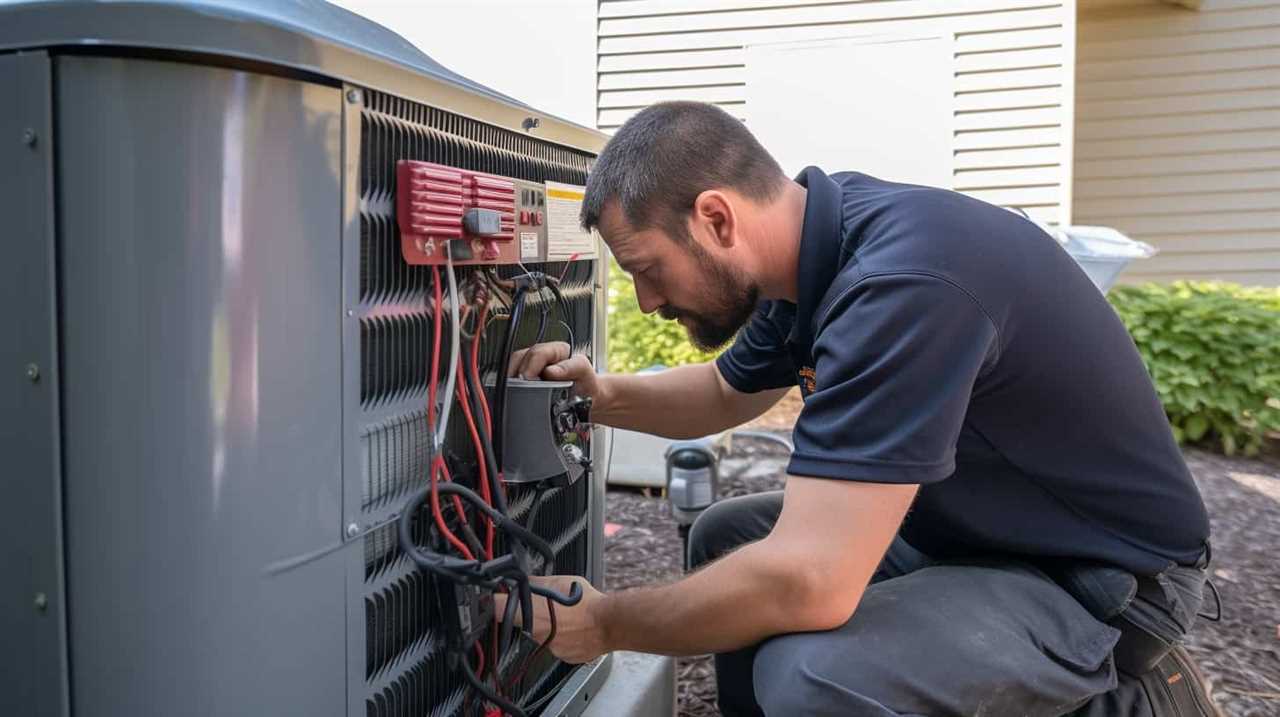
By following these heat pump maintenance and energy saving tips, you can optimize the performance of your heat pump and save on energy costs.
Now, let’s explore the future of heat pump technology.
Exploring the Future of Heat Pump Technology
As we look ahead, advancements in heat pump technology are poised to revolutionize the way we heat our homes. The future of heat pump technology holds great promise, with advancements in design that will greatly improve efficiency and performance.
Here are three key developments that will have a significant impact on energy consumption:
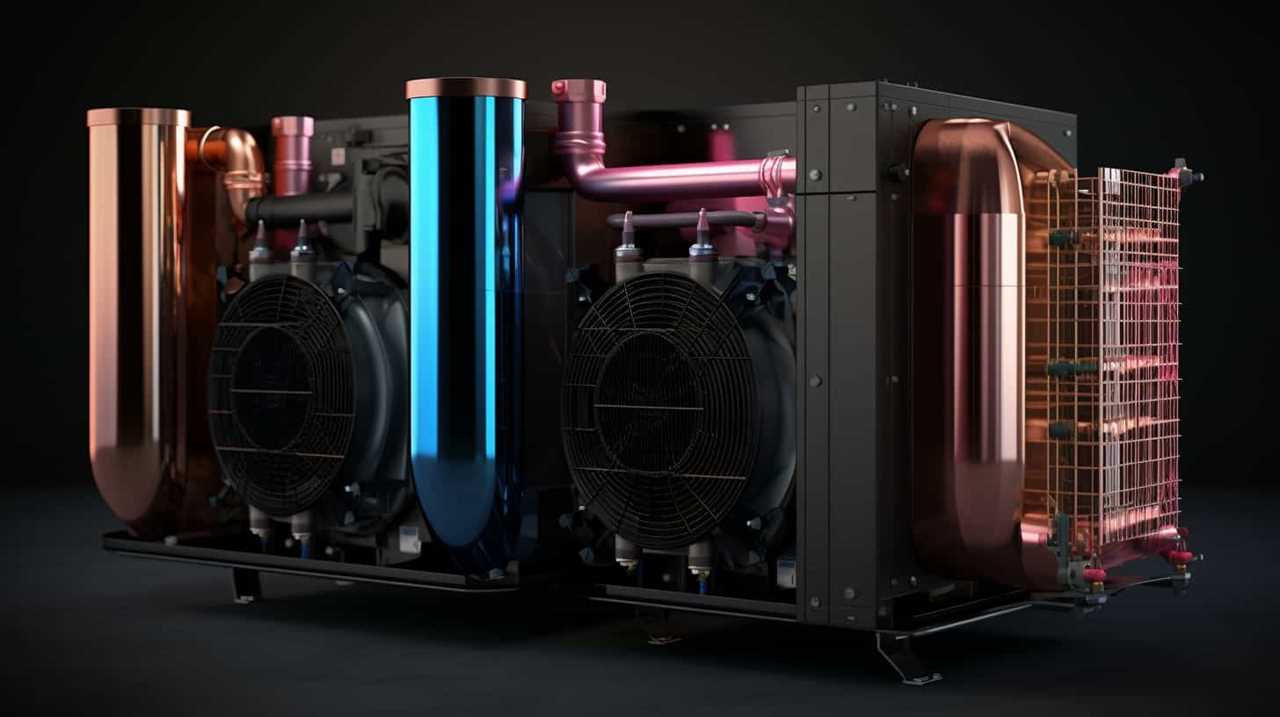
-
Enhanced Efficiency: Advancements in heat pump design will greatly improve efficiency, allowing for more effective heating while consuming less energy. This means lower utility bills and reduced environmental impact.
-
Renewable Energy Integration: Heat pumps will increasingly integrate with renewable energy sources, such as solar and geothermal power, further reducing reliance on fossil fuels and promoting sustainability.
-
Smart Controls: Heat pumps of the future will feature advanced smart controls, allowing homeowners to optimize their heating systems for maximum efficiency. This won’t only save energy but also provide greater comfort and convenience.
These advancements in heat pump technology won’t only benefit homeowners but also contribute to a more sustainable and environmentally friendly future.
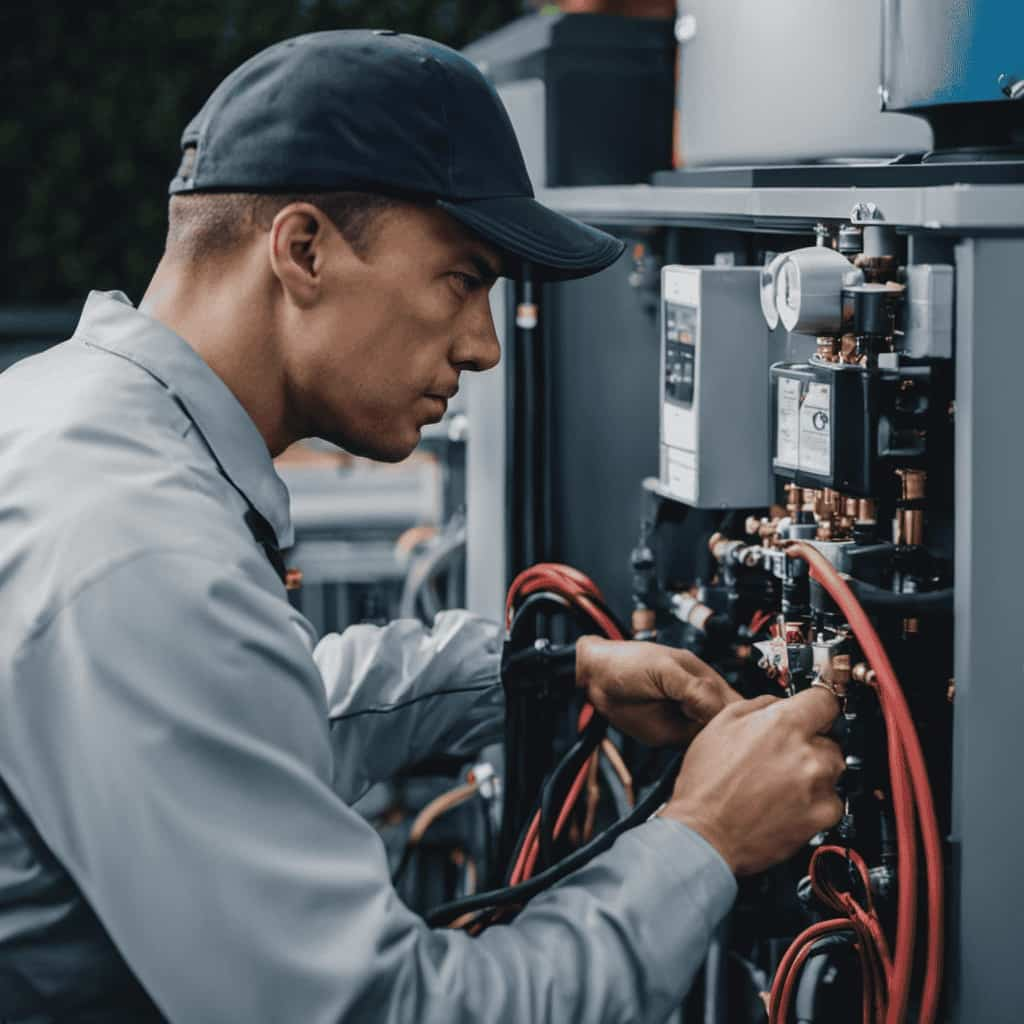
Frequently Asked Questions
How Much Does a Heat Pump System Cost to Install?
Heat pump installation expenses vary based on factors like the size of the system, location, and additional upgrades. It’s important to consult with a professional to get an accurate estimate for your specific needs.
Are Heat Pumps Suitable for Both Heating and Cooling Purposes?
Yes, heat pumps are suitable for both heating and cooling purposes. They provide efficient heating and cooling by transferring heat from one area to another. Regular heat pump maintenance ensures optimal performance and energy efficiency.
Can a Heat Pump System Be Used in Extremely Cold Climates?
Yes, a heat pump system can be used in extremely cold climates. Although heat pump efficiency may decrease in colder temperatures, advancements in technology have improved heat pump performance even in the harshest conditions.
What Is the Average Lifespan of a Heat Pump System?
The average lifespan of a heat pump system depends on various factors, such as regular maintenance and usage. However, with proper care and upkeep, these systems can provide long-term durability and efficiently serve your heating needs.

Are Heat Pumps Eligible for Any Government Incentives or Rebates?
Yes, heat pumps are eligible for various government incentives and rebates. These programs aim to promote energy savings and help homeowners afford more efficient heating options.
Conclusion
In conclusion, heat pump technology offers an efficient and sustainable solution for heating homes.
Did you know that heat pumps can achieve efficiency ratings of up to 300%? This means that for every unit of electricity consumed, a heat pump can produce up to three units of heat energy, making it a highly cost-effective and environmentally friendly heating option.
By understanding the basics and optimizing performance, homeowners can maximize the benefits of heat pump technology.
